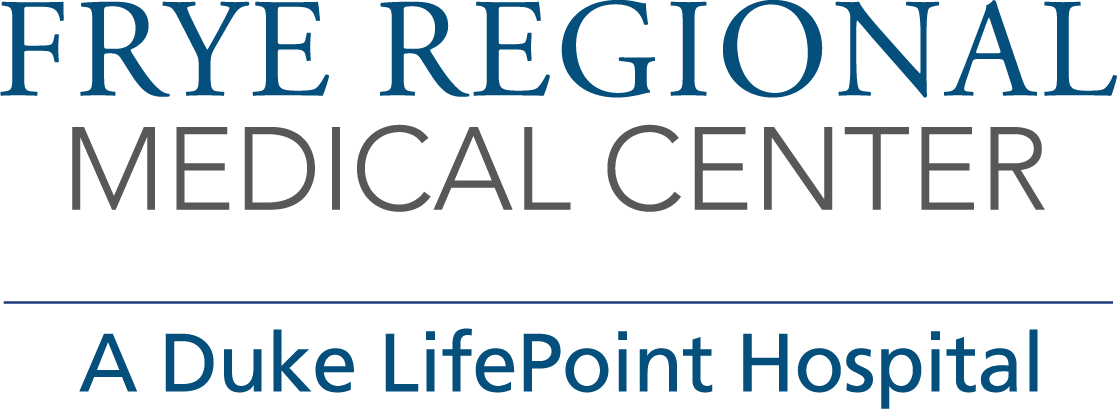How Healthy is Your Heart?
February 8, 2022

By Srinivas Mikkilineni, MD, Cardiologist, FryeCare Cardiology
Your heart is one of the hardest working parts of your body. It’s also one of the most threatened. In fact, according to the Centers for Disease Control and Prevention (CDC), heart disease is the leading cause of death for both men and women in the U.S. – about one in four deaths. Additionally, in the U.S., someone has a heart attack every 40 seconds. And about one in five of those heart attacks is silent – meaning you may not be aware of damage to your heart that is happening or has already taken place.
That is why it is so important to stay on top of our heart health. Do you know how healthy your heart is? This American Heart Month, refresh yourself on a few key indicators that can give insight into your heart’s current health state and point to any specific steps you may need to take for its care.
Cholesterol is a substance that circulates in your blood and comes in two different types – LDL (also known as the “bad” kind) and HDL (known as the “good” kind). HDL cholesterol transports the LDL cholesterol from your arteries to the liver, where it is flushed from your body. Too much of the LDL or not enough of the HDL increases your risk for build-up and blockage in your arteries, potentially leading to heart attack or stroke. Knowing your cholesterol numbers is one of the key ways to assess your heart health and one of the most manageable factors in terms of lowering your risk for disease. Targets for healthy cholesterol levels can vary based on age and gender but a general rule of thumb for adults is to aim for 125-200 mg/dL.
Blood pressure is just what it says – it measures the pressure or force of blood within your arteries. Like cholesterol, there are two different numbers – your systolic pressure (the higher of the two numbers) measures your blood pressure when your heart beats and your diastolic pressure (the lower of the two numbers) measures your blood’s pressure when your heart is resting between beats. A normal blood pressure reading is less than 120 systolic and less than 80 diastolic. Readings above these levels would be considered elevated or high, including hypertension when readings are 130/80 or above. High blood pressure can be a significant contributor to and sign of serious heart issues. Unfortunately, it is an all too common condition, affecting nearly half of American adults according to the American Heart Association, and presenting no symptoms the majority of the time. Because there are often no clear-cut symptoms, it’s important to get your blood pressure checked. Fortunately, high blood pressure can be lowered and managed with the proper care.
Waist size can also be a harbinger for heart health and a predictor of heart problems. A study by the National Heart, Lung and Blood Institute showed that men with a waist size larger than 40 inches and women with a waist size greater than 35 inches are at higher risk for heart disease and type 2 diabetes. The good news is that healthy eating and physical activity can help you lower and maintain a healthy waist size and stay on the road to good heart health.
Risk factors like high cholesterol and blood pressure can also run in your family, so knowing your family’s heart health history can help you stay alert to your own health risks. And while these aren’t the only markers on the map to good heart health, they are key factors in determining how healthy
your heart is and your risk for heart issues now or down the road. Your primary care provider can check these numbers for you – including during your annual check-up – and work with you on a plan to make any changes necessary to get you back on track, whether it’s simple lifestyle changes or medication if necessary.
How healthy is your heart? Know your numbers so you can know how to stay on the road to good heart health.
Need help to know your heart? You can count on us. From primary care to heart services, we’re here for you with high-quality, compassionate care when you and your family need it. Call 828-315-3391 or visit the “Find a Doctor” tab at MyFryeRegional.com to make an appointment. For more information on heart health, visit heart.org. If applicable: You can also take our free heart health assessment at MyFryeRegional.com/Heart.
FryeCare Physicians Network offers preventive, diagnostic and treatment services in a compassionate environment—close to home. The network includes more than 60 experienced providers in a range of specialties, including cardiology, cardiothoracic surgery, family and internal medicine, infectious disease, neurology, neurosurgery, obstetrics and gynecology, pulmonology, and vascular surgery. Learn more at www.FryeCarePhysicians.com.
About Frye Regional Medical Center
A part of Duke LifePoint Healthcare, Frye Regional Medical Center has served the health and medical needs of the residents of the Catawba Valley region since 1911 with a commitment to delivering high quality and compassionate care with a focus on patient satisfaction and clinical outcomes. In 2020, the hospital made more than $5.2 million in capital investments; donated more than $79 million in services to those in need; and added 55 employed, affiliated and telehealth providers.
Frye Regional Medical Center includes a 355-bed acute care hospital—home to the Frye Brain Center, Cancer Center, Heart Center, Lung Center, Orthopedics, General and Vascular Surgery, Surgical Weight Loss, and Women’s Center with a Level III NICU.
The hospital also features a 32-bed Emergency Department, 29-bed Inpatient Rehabilitation Center, 15-bed Surgical Suite and Inpatient/Outpatient Imaging. Frye Regional’s South Campus is home to an 81-bed Behavioral Health Hospital. The health system also offers regional access to more than 60 primary care and specialty care providers through the FryeCare Physicians Network. Learn more at www.MyFryeRegional.com.
